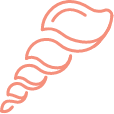Trauma Services
Trauma is usually defined as a life threatening event like an accident or an assault, or it can be an ongoing experience that feels hurtful or devastating. Trauma can be about not getting enough of the good things like nurturing or validation as a child. This is commonly referred to as “small t” trauma, while abuse is referred to as “big T trauma.” As a society, we are getting better at recognizing and understanding how we are impacted by all kinds of traumatic experiences. For example, we can be greatly affected by childhood trauma where there has been physical, sexual, and emotional abuse or neglect. If we’ve been mistreated by medical, judicial, educational, or mental health systems, we can have institutionally induced trauma. At times, trauma can be more subtle and insidious, but it can still have powerful effects on our lives. There is a wealth of research on the impact of trauma on our nervous system, our health, our relationships, and our overall functioning.
Fortunately, there is help. We now know the effective use of psychotherapy and the various trauma-focused therapies that are very successful in treating trauma. It is possible to heal, recover, and go on to thrive. You are not defined by what has happened to you. It was something that happened to you.
What is Betrayal Trauma?

Some common symptoms and feelings are the following:
- Shock self-doubt sleeping problems,
- Denial feelings of going crazy nightmares,
- Grief wanting to isolate loss of appetite or overeating,
- anger/rage fear and terror hyperarousal,
- Shame sadness easily startled,
- Humiliation anxiety feeling of overwhelm Helplessness,
- powerlessness emotionally unstable.
7 reminders that can help:
- First of all, it is important for you to know that it is not your fault. There is nothing you did or didn’t do. You didn’t cause this.
- You need people who understand and “get it.” You need education, guidance, support, understanding and compassion right now.
- You need as much self-care practices as possible to calm and soothe your inflamed nervous system.
- You need safety in your own home. Identifying your needs and boundaries will help you feel more in control.
- You need to know that a roadmap for healing and recovery exists, and the fog will clear. You don’t need to make any major decisions right now. Give yourself time.
- You need to know that you won’t always be feeling this way. Trauma has a timeless feel to it. You will be less reactive and less triggered as you move forward in your healing journey.
- Although it may not feel like it, there is hope for you to transcend this trauma, and you will be stronger, wiser, and more confident as a result.
What is sex addiction?

Here’s how you can get help:

Individual Therapy
To work on your self-care, understanding of betrayal trauma and sex addiction, managing triggers, setting healthy boundaries, getting additional support, and starting your journey toward healing and recovery.

Couples Therapy
To work on starting the trust-building process, setting healthy boundaries with each other, working on communication and conflict resolution, educating the sex addict on betrayal trauma and how he/she can help you support you when triggered, parenting issues, making necessary agreements for disclosure, and amends.

Partner Trauma Groups
To receive compassionate support with other partners who understand and are dealing with similar issues in an environment of no judgment, safety, and trust.

Intensives and Workshops
Allow for greater learning and healing beyond the individual therapy weekly sessions.
